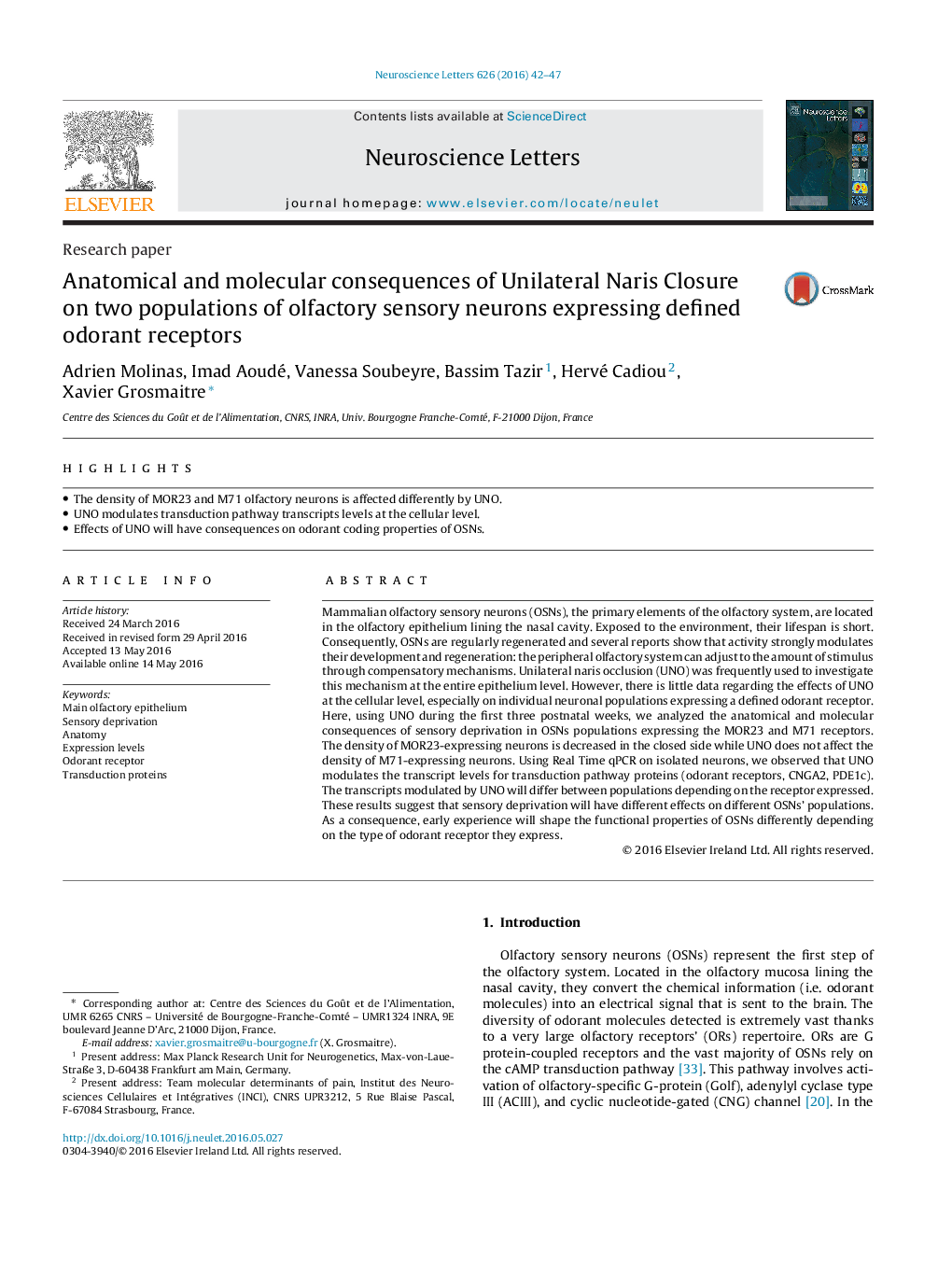| کد مقاله | کد نشریه | سال انتشار | مقاله انگلیسی | نسخه تمام متن |
|---|---|---|---|---|
| 4343178 | 1615073 | 2016 | 6 صفحه PDF | دانلود رایگان |
• The density of MOR23 and M71 olfactory neurons is affected differently by UNO.
• UNO modulates transduction pathway transcripts levels at the cellular level.
• Effects of UNO will have consequences on odorant coding properties of OSNs.
Mammalian olfactory sensory neurons (OSNs), the primary elements of the olfactory system, are located in the olfactory epithelium lining the nasal cavity. Exposed to the environment, their lifespan is short. Consequently, OSNs are regularly regenerated and several reports show that activity strongly modulates their development and regeneration: the peripheral olfactory system can adjust to the amount of stimulus through compensatory mechanisms. Unilateral naris occlusion (UNO) was frequently used to investigate this mechanism at the entire epithelium level. However, there is little data regarding the effects of UNO at the cellular level, especially on individual neuronal populations expressing a defined odorant receptor. Here, using UNO during the first three postnatal weeks, we analyzed the anatomical and molecular consequences of sensory deprivation in OSNs populations expressing the MOR23 and M71 receptors. The density of MOR23-expressing neurons is decreased in the closed side while UNO does not affect the density of M71-expressing neurons. Using Real Time qPCR on isolated neurons, we observed that UNO modulates the transcript levels for transduction pathway proteins (odorant receptors, CNGA2, PDE1c). The transcripts modulated by UNO will differ between populations depending on the receptor expressed. These results suggest that sensory deprivation will have different effects on different OSNs’ populations. As a consequence, early experience will shape the functional properties of OSNs differently depending on the type of odorant receptor they express.
Journal: Neuroscience Letters - Volume 626, 28 July 2016, Pages 42–47
